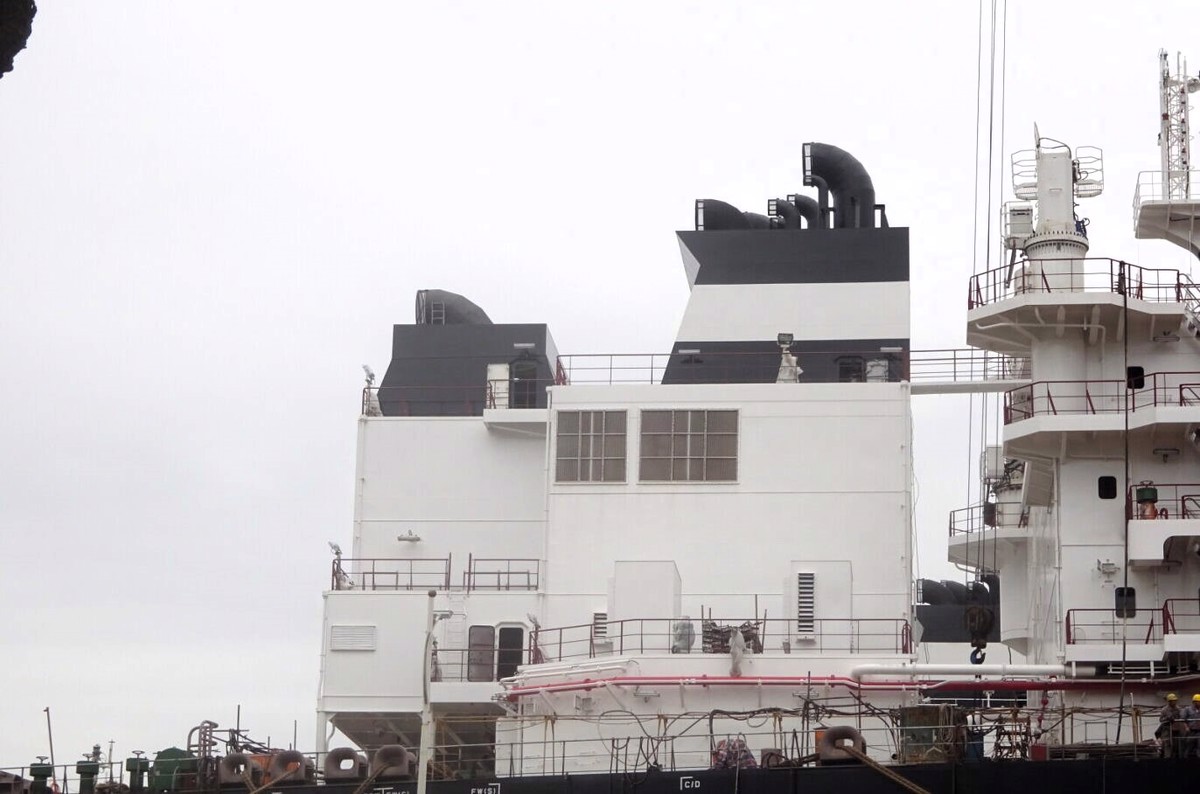Denmark prohibits discharge of scrubber washwater from 1 July 2025
The Danish government is set to ban the discharge of scrubber washwater into the country’s territorial waters.
 PHOTO: A scrubber-fitted ship. Clean Marine
PHOTO: A scrubber-fitted ship. Clean Marine
The law, which will come into force from 1 July 2025, will cover ships sailing with open-loop scrubbers in the range of 22 km (12 nautical miles) from the Danish coastline.
For ships with closed-loop scrubbers, the ban will enter into force from 1 July 2029, according to a statement released by the country's environment ministry.
Scrubbers or exhaust gas cleaning systems (EGCS) allow ships to comply with the International Maritime Organizations' 0.5% sulphur cap by capturing sulphur dioxide from exhaust gases. While the shipping and oil industries maintain that scrubbers are effective in mitigating pollution, opposition voices like the Clean Arctic Alliance argue that scrubbers are an outdated solution.
Open-loop scrubbers use seawater to clean the exhaust gas. The washwater is then released back into the sea. Closed-loop scrubbers use fresh water for cleaning instead of seawater.
There are currently 5,385 scrubber-fitted vessels in operation and orders, according to classification society DNV’s data. About 80% of these vessels are equipped with open-loop scrubbers that mostly discharge washwater into the open sea.
With this ban, the Danish government aims to reduce the discharge of hazardous substances into the marine environment. This will help to reduce discharge of nickel by up to 20% and anthracene by 7%, it said.
“Denmark must work for a similar ban in the Baltic Sea and North Sea through the regional sea conventions HELCOM [the Baltic Marine Environment Protection Commission – also known as the Helsinki Commission] and OSPAR [the Convention for the Protection of the Marine Environment of the North-East Atlantic],” the statement read.
Ships sailing in Danish waters will eventually need to switch to using either low-sulphur fuel or closed-loop scrubbers with zero emissions. Such ships will need to deliver the residual product from the closed-loop scrubber to the ports’ reception facilities.
By Aparupa Mazumder
Please get in touch with comments or additional info to news@engine.online






